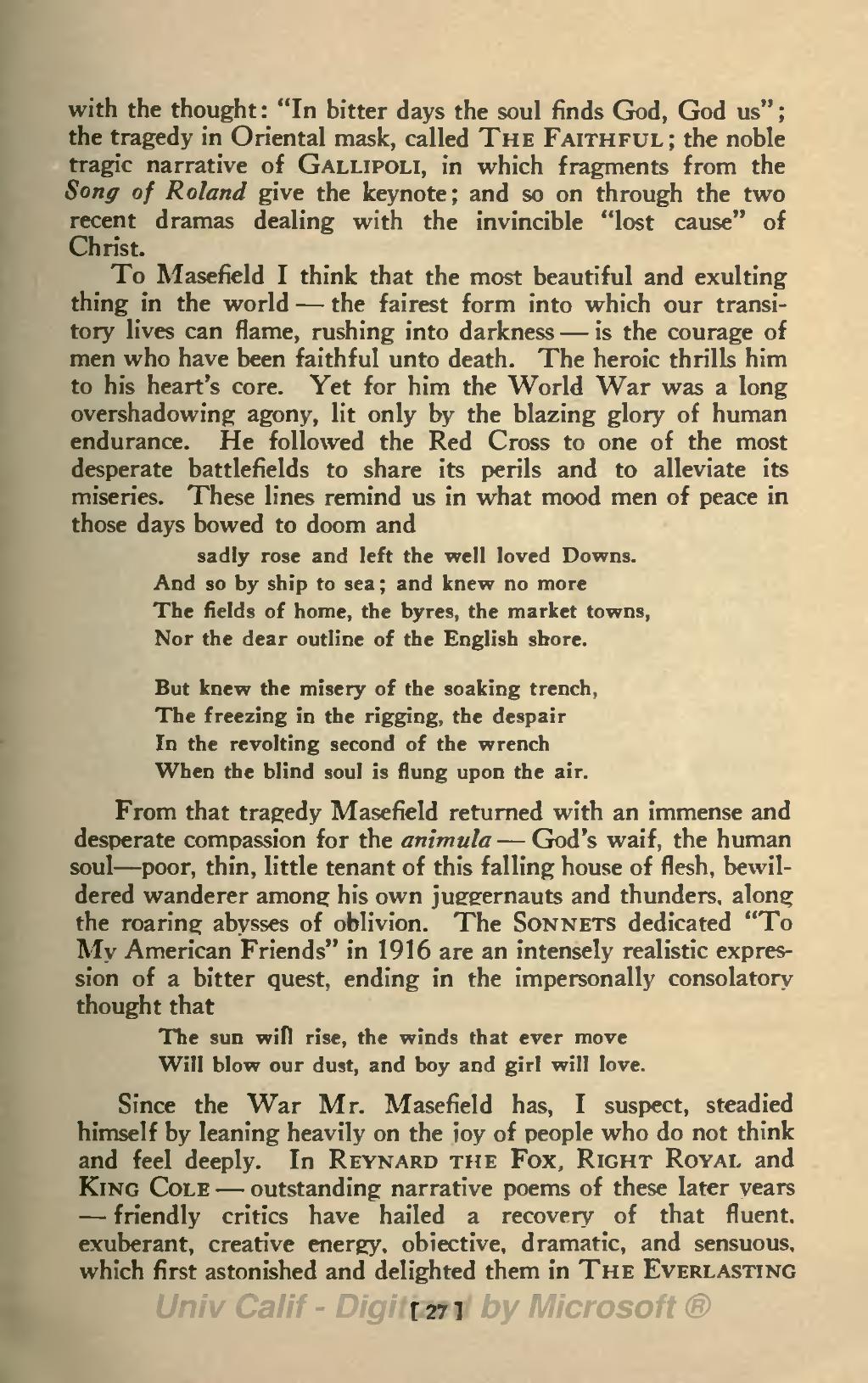with the thought: "In bitter days the soul finds God, God us"; the tragedy in Oriental mask, called The Faithful; the noble tragic narrative of Gallipoli, in which fragments from the Song of Roland give the keynote; and so on through the two recent dramas dealing with the invincible "lost cause" of Christ.
To Masefield I think that the most beautiful and exulting thing in the world—the fairest form into which our transitory lives can flame, rushing into darkness—is the courage of men who have been faithful unto death. The heroic thrills him to his heart's core. Yet for him the World War was a long overshadowing agony, lit only by the blazing glory of human endurance. He followed the Red Cross to one of the most desperate battlefields to share its perils and to alleviate its miseries. These lines remind us in what mood men of peace in those days bowed to doom and
sadly rose and left the well loved Downs.
And so by ship to sea; and knew no more
The fields of home, the byres, the market towns,
Nor the dear outline of the English shore.
But knew the misery of the soaking trench,
The freezing in the rigging, the despair
In the revolting second of the wrench
When the blind soul is flung upon the air.
From that tragedy Masefield returned with an immense and desperate compassion for the animula—God's waif, the human soul—poor, thin, little tenant of this falling house of flesh, bewildered wanderer among his own juggernauts and thunders, along the roaring abysses of oblivion. The Sonnets dedicated "To My American Friends" in 1916 are an intensely realistic expression of a bitter quest, ending in the impersonally consolatory thought that
The sun will rise, the winds that ever move
Will blow our dust, and boy and girl will love.
Since the War Mr. Masefield has, I suspect, steadied himself by leaning heavily on the joy of people who do not think and feel deeply. In Reynard the Fox, Right Royal and King Cole—outstanding narrative poems of these later years—friendly critics have hailed a recovery of that fluent, exuberant, creative energy, objective, dramatic, and sensuous, which first astonished and delighted them in The Everlasting
[27]
